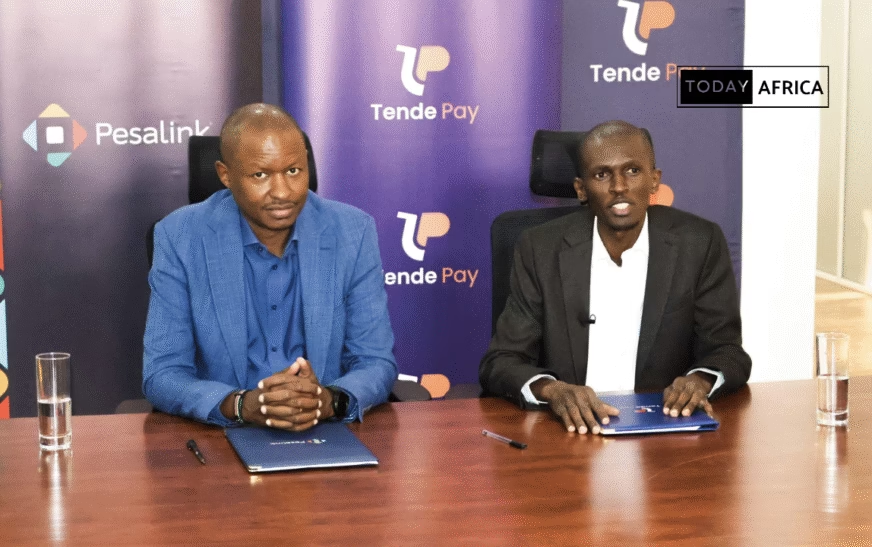Pesalink and Nairobi-based fintech TendePay have teamed up to make bulk and single payments faster, allowing small businesses to instantly move up to KES 999,999 ($7,700) across all banks.
The move signals a push by private players to broaden payment options for companies as regulators drag structural reforms.
PesaLink, run by the Kenya Bankers Association (KBA), connects all local banks, mobile money providers, and fintechs. TendePay, which began as a petty cash tool, now offers a full spend management platform.
This partnership means both firms can run payroll, pay suppliers, settle utilities, and collect from customers from one central bank of Kenya (CBK)-regulated platform with automatic reconciliation—critical for organisations processing hundreds or thousands of transactions daily.
“This partnership reflects our evolution into a full spend management platform,” said TendePay CEO Abel Masai. “ With Pesalink’s trusted infrastructure, we are giving businesses a reliable, secure, and affordable tool to manage every payment, whether large or small, at any time.”
The timing is significant considering the CBK is exploring a new fast payment system (FPS) to make transfers cheaper and interoperable for most business payments.
In 2024, CBK announced plans to develop a new instant payment system, the biggest advance in the country’s money transfer network.
See Also: Trump put a $100K price tag on foreign talent
While timelines remain unclear, payment service providers such as Pesalink, M-PESA, and Airtel Money have increased investments over the past year to boost capacity.
They have also doubled down on partnerships to drive industry-wide integration.
“At Pesalink, we believe collaboration is the key to helping businesses move differently,” chief commercial officer Ken Lisudza told TechCabal. “Pesalink was built on the principle of interoperability to simplify payments by delivering instant and affordable transfers across Kenya’s financial ecosystem.”
Pesalink has emerged as the favoured payment system among sector players.
Safaricom and the KBA argue that building a fresh system could cost $200 million and take four years, duplicating infrastructure that already works. They have suggested upgrading existing rails instead.
Safaricom has been expanding M-PESA’s reach into bank transfers.
A September update doubled the per-transaction limit to KES 500,000 ($3,900) via a Pesalink mini app, giving SMEs and corporates more room to handle high-value transactions.
These shifts point to a market racing to meet surging demand for real-time, high-value digital payments.
Leave a comment and follow us on social media for more tips:
- Facebook: Today Africa
- Instagram: Today Africa
- Twitter: Today Africa
- LinkedIn: Today Africa
- YouTube: Today Africa Studio
















